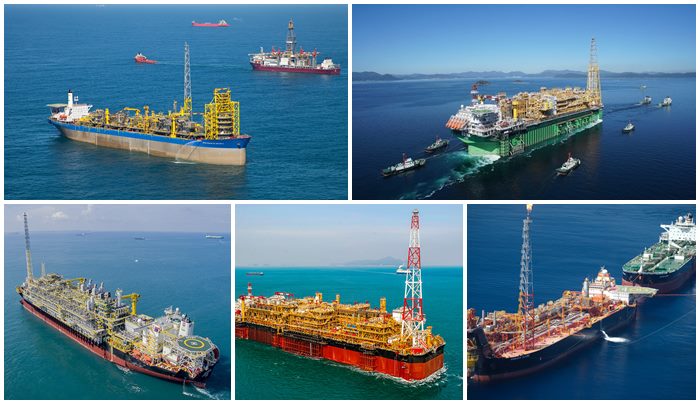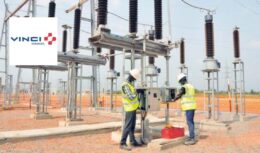
Pre-salt sector is estimated at 19 additional FPSOs amid the entry of foreign operators and investments and changes in contract terms
Brazil's floating production market has enjoyed a decade of intense growth as the main component of a 1,5 million barrels per day increase in pre-salt and now, although the sector continues to expand, changes are likely to come. in terms of engineering and contractual models due, in part, to the arrival of new operators to the site.
A recent report commissioned by the federal entity PPSA predicted that 14 production sharing contracts covering pre-salt prospects would generate around 19 new projects for floating production, storage and offloading units, and total investments of US$144 billion.
The forecast takes into account the fact that many of the prospects have relatively low risk from an exploration perspective, and some are essentially assessments of known reservoirs.
The growth could be even greater if frontier exploration outside the pre-salt province leads to more development projects, with high hopes for the deep water polygons Potiguar and Sergipe Alagoas and, depending also on environmental licensing, the equatorial margin. Asset sales by the state-owned Petrobras, along with investments in mature basins and pre-salt exploration at deeper horizons, could also generate demand for floaters.
A successful track record in the Campos and Santos Basins means that this growth will almost certainly be driven by FPSO's and the subsea completion format, while advances in subsea processing could lead to higher production per unit.
Recently, Petrobras focused on completing the installation of its first wave of pre-salt projects, with the aim of generating income, although a new investment cycle is now starting.
Major players in Brazil and expected demand
In the leasing sector, Modec and SBM Offshore have shared the majority of contracts, delivering 21 units between them since 2017.
Many Petrobras production units have suffered construction delays, but the final elements in this first phase of development are also approaching.
O FPSO P-67 is ready to start production in the Lula field, where the FPSO P-69 is also in a growth phase and, with eight major FPSOs, this flagship development will soon reach peak production of 1.1. million bpd, to the delight and relief of Petrobras and its partners Shell and Galp.
The ramp-up at the Búzios field is also advancing quickly after delays in the construction of four floats, each with a capacity of 150.000 bpd of crude oil and 6 million cubic meters of natural gas per day and operated by Petrobras under a transfer agreement. of rights.
FPSO P-77 cleared customs in southern Brazil two weeks ago and is heading to the Búzios field, where the P-75 recently started production and the P-76 should also receive the first oil in February.
Petrobras also has proposals in progress and last Friday it received proposals from three companies that expect to supply two FPSOs for the Marlim revitalization project. Tenders are also due for an FPSO for the Parque das Baleias development and for the Mero-2 float, the latter with 180.000 bpd of production capacity and 12 MMcmd of gas compression.
A tender for an FPSO leased for the Buzios-5 project has resulted in a frustrating delay for Petrobras due to its inability so far to finalize a deal with Belgium's Exmar.
Petrobras' current business plan indicates that two more FPSO auctions will be ready for production to start in 2023.
Itapu in the Santos Basin
One of them is the first production unit in the deep water sector of the Sergipe-Alagoas basin, with a processing capacity of 100 bpd. The other is for an FPSO to be installed in the Itapu pre-salt field, in the Santos Basin, with a processing capacity of 120.000 bpd.
After Itapu, sources say that Petrobras should continue bidding for two more units for the Mero field, in partnership with Shell, Total, China National Petroleum Corporation and China National Offshore Oil Corporation.
Petrobras has not provided early oil dates for Mero-3 and Mero-4, but project managers have suggested that the four projects will be released at intervals of about 12 months.
However, delays on the first FPSO contract and now subsea packages, umbilicals, risers and flowlines are threatening the first oil targets for Mero-1 and pushing others back. Industry sources are also hopeful of seeing documents for a sixth FPSO to be installed in the Búzios pre-salt field, although they may get a new proposal for Búzios-5 first.
There are also growing expectations that the limitations in the contracting models used in Petrobras' recent tenders, in addition to the arrival on the scene of large international operators, should bring about major changes in the models used for contracting.








Army summons Brazilians with up to…
Come be a watermelon, you too
Air Force F-16 fighters…
Which genocide are you talking about? Than…
Air Force F-16 fighters…
Everything is fine, 100-year secrecy,…
Air Force F-16 fighters…
Well... It's flying scrap... Typical...
Brazil begins an ambitious journey…
Very poor project with the final station…
When will the first Otto Octavius appear???
I am an Administrator, with experience in logistics and…
Friend, you don't need to use the tile...
Lol I imagine where kites, parrots, etc. are flown…
I'm from Santos SP, I have a vacancy...
another pick-up
Dude, the material is instructive, me too…
We are self-sufficient in energy production…